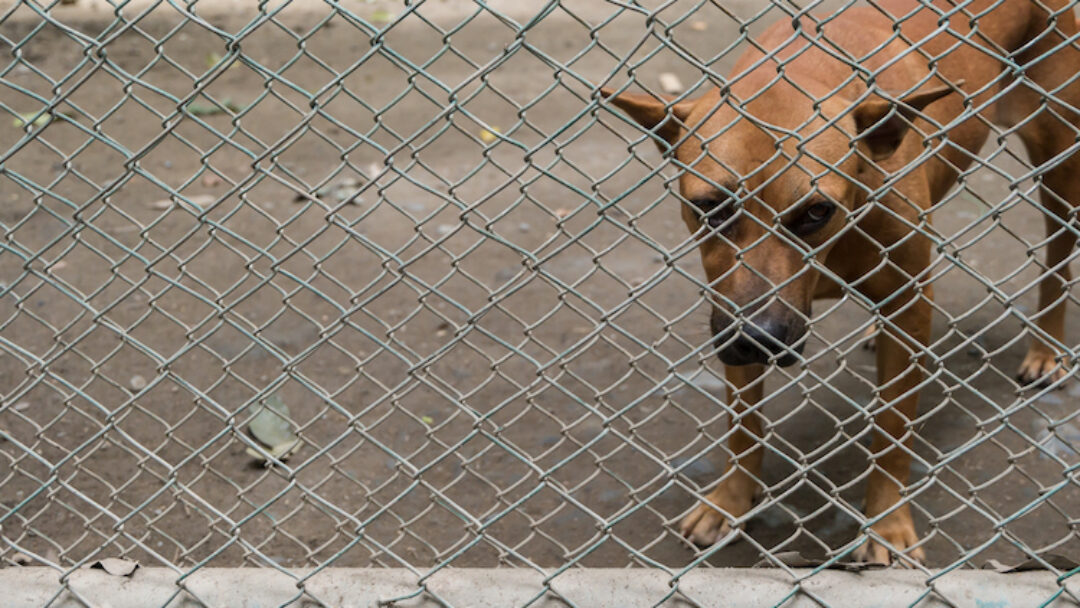On November 16, a homeowner and his sister, were arrested and accused of 56 counts of animal cruelty.
Last month, law enforcement authorities reported they were in the area of 7th Street and Cave Creek Road while conducting a different inquiry, searching for individuals who were suspected of stealing a car.
During their search for a suspect, an Phoenix PD officer inspected the backyard of a residence and discovered a number of dogs chained up. According to police, the canines seemed to be severely underfed, in unacceptable poor conditions.
As a result, officers booked two suspects Barry Kee (45) and Dandrea Price (35) on 56 counts of animal cruelty and contacted the Arizona Humane Society to rescue the dogs. Eight canines had to be removed and required urgent medical aid.
The Rising Concern of Animal Cruelty in Arizona
Animal cruelty is a serious issue that continues to plague our society, and Arizona is no exception. In recent months, several animal cruelty stories have made the Arizona.
In order to address this pressing concern, it is important to understand the existing laws and regulations that aim to protect animals in Arizona.
In Arizona, animal cruelty is defined as any act of intentional or reckless mistreatment, neglect, or harm inflicted upon an animal. The State of Arizona has implemented comprehensive legislation to combat animal cruelty, which covers domestic animals, livestock, and wildlife. These laws aim to ensure the welfare and well-being of animals, as well as hold perpetrators accountable for their actions.
Understanding the Consequences of Animal Cruelty
Animal cruelty not only causes immense suffering to innocent creatures, but it also has far-reaching consequences for our society as a whole. Research has shown a strong correlation between animal cruelty and other forms of violence, such as domestic abuse and violent crimes. Studies have found that individuals who engage in animal cruelty often exhibit a lack of empathy and compassion, which can escalate to harm towards humans.
Moreover, animal cruelty has detrimental effects on the psychological well-being of both the animals involved and the witnesses. Animals subjected to cruelty may experience physical injuries, emotional trauma, and long-lasting psychological damage. Witnessing acts of animal cruelty can also have a profound impact on individuals, leading to increased feelings of helplessness, anxiety, and a decreased sense of safety in their communities.
Animal Cruelty Statistics in Arizona
According to the Arizona Humane Society, there were over 5,000 reported cases of animal cruelty in the state in the past year alone. These cases ranged from neglect and abandonment to intentional abuse and violence.
It is worth noting that these reported cases are just the tip of the iceberg, as many instances of animal cruelty go unreported or unnoticed. Animals that are involved in illegal activities, such as dogfighting or cockfighting, often suffer in silence due to the fear and secrecy surrounding these operations. Additionally, cases of neglect or mistreatment in private homes may go unnoticed if there are no witnesses or concerned individuals who report them.
Recognizing and Reporting Animal Cruelty
Recognizing the signs of animal cruelty is crucial in order to intervene and protect the innocent animals involved. Some common indicators of animal cruelty include physical injuries, malnutrition, untreated medical conditions, and signs of neglect, such as living in unsanitary conditions or being confined in small, overcrowded spaces. It is important to trust your instincts and report any suspicions or concerns to the appropriate authorities.
In Arizona, the Arizona Humane Society and local law enforcement agencies play a vital role in responding to and investigating cases of animal cruelty. They have trained professionals who are equipped to handle these situations and ensure the safety and well-being of animals. If you witness or suspect animal cruelty, it is important to report it immediately to the authorities, providing as much detailed information as possible.
The Role of Law Enforcement in Animal Cruelty Cases
Law enforcement agencies in Arizona play a crucial role in addressing and combating animal cruelty. They work hand in hand with animal welfare organizations to investigate reported cases, gather evidence, and hold perpetrators accountable for their actions. In recent years, there has been a growing recognition of the link between animal cruelty and other criminal activities, such as drug trafficking and organized crime. This has further highlighted the importance of collaboration between law enforcement agencies and animal welfare organizations.
Animal cruelty cases require a specialized approach, as they often involve complex investigations and evidence collection. Law enforcement agencies have dedicated units or officers who are trained in handling animal cruelty cases and have the necessary knowledge and skills to ensure a thorough investigation. They work closely with prosecutors to build strong cases against perpetrators and seek appropriate legal action.
Animal Cruelty Penalties and Punishments in Arizona
In Arizona, the penalties and punishments for animal cruelty vary depending on the severity of the offense and the circumstances surrounding the case. The state has implemented strict laws to deter individuals from engaging in acts of animal cruelty and to ensure that those responsible are held accountable.
Misdemeanor animal cruelty offenses can result in fines up to $2,500 and up to six months of imprisonment. However, in cases where the offense involves aggravating factors, such as the intentional killing of an animal or repeated acts of cruelty, it can be charged as a felony. Felony animal cruelty convictions can lead to higher fines, longer prison sentences, and the possibility of probation or community service.
Advocacy and Support for Animals in Arizona
Despite the existing laws and penalties, the fight against animal cruelty requires the collective efforts of individuals, organizations, and communities. Advocacy and support for animals are crucial in raising awareness, promoting change, and ensuring the welfare of animals in Arizona.
There are numerous animal welfare organizations across Arizona that strive to protect and advocate for animals. These organizations work tirelessly to rescue abused and neglected animals, provide them with necessary medical care and rehabilitation, and find them loving forever homes. Supporting these organizations through donations, volunteering, or adopting animals in need can make a significant difference in the lives of animals and the fight against animal cruelty.
Taking Action Against Animal Cruelty in Arizona
Everyone plays a crucial role in taking action against animal cruelty in Arizona. Educating ourselves and others about the signs of animal cruelty, reporting any suspicions or concerns to the authorities, and supporting animal welfare organizations are important steps we can take to combat this issue. Additionally, advocating for stronger laws and penalties for animal cruelty can help create a safer and more compassionate environment for animals in Arizona.
Resources for Reporting and Preventing Animal Cruelty
If you witness or suspect animal cruelty in Arizona, it is crucial to report it to the appropriate authorities. The Arizona Humane Society operates a dedicated Animal Cruelty Investigative Team that responds to reports of animal cruelty and investigates these cases. They can be reached through their emergency hotline or online reporting system.
Additionally, the Arizona Animal Welfare League, the Humane Society of Southern Arizona, and the Maricopa County Animal Care and Control are valuable resources that provide support, education, and advocacy for animals in Arizona. These organizations offer information on reporting animal cruelty, pet adoption, and ways to get involved in the fight against animal cruelty.
The rising concern of animal cruelty in Arizona demands our attention. By understanding the laws and consequences of animal cruelty, recognizing the signs, reporting suspected cases, and advocating for change, we can make a difference in the lives of innocent animals.








